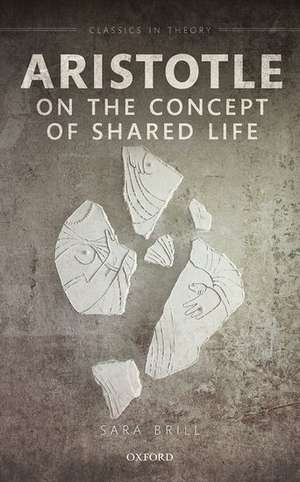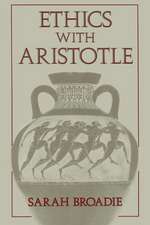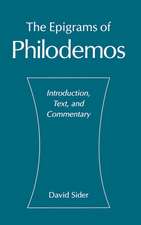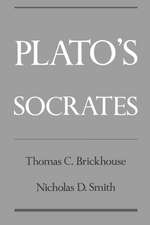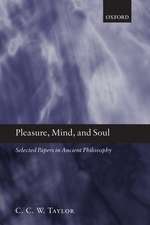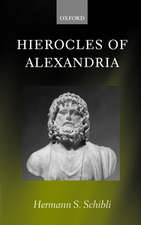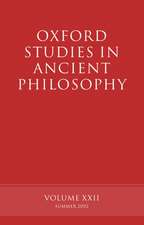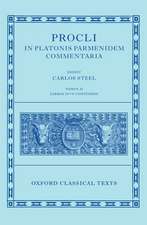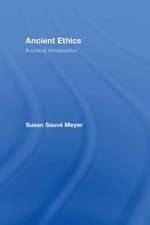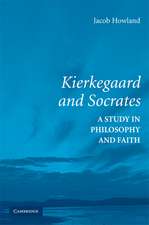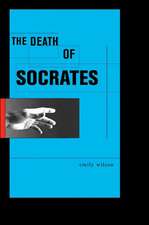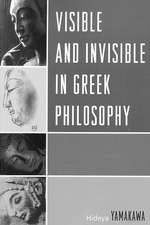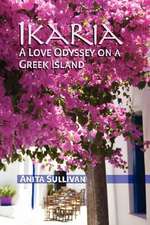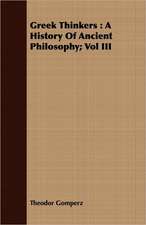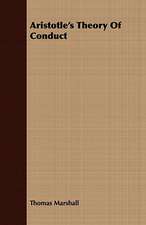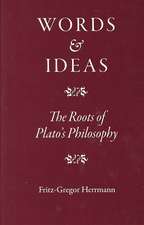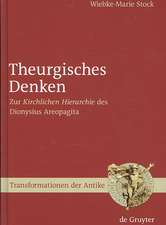Aristotle on the Concept of Shared Life: Classics in Theory Series
Autor Sara Brillen Limba Engleză Hardback – 28 mai 2020
Preț: 626.84 lei
Preț vechi: 841.13 lei
-25% Nou
Puncte Express: 940
Preț estimativ în valută:
119.94€ • 125.57$ • 99.25£
119.94€ • 125.57$ • 99.25£
Carte tipărită la comandă
Livrare economică 25-31 martie
Preluare comenzi: 021 569.72.76
Specificații
ISBN-13: 9780198839583
ISBN-10: 0198839588
Pagini: 296
Dimensiuni: 144 x 222 x 19 mm
Greutate: 0.48 kg
Editura: OUP OXFORD
Colecția OUP Oxford
Seria Classics in Theory Series
Locul publicării:Oxford, United Kingdom
ISBN-10: 0198839588
Pagini: 296
Dimensiuni: 144 x 222 x 19 mm
Greutate: 0.48 kg
Editura: OUP OXFORD
Colecția OUP Oxford
Seria Classics in Theory Series
Locul publicării:Oxford, United Kingdom
Recenzii
...the work in question is remarkable for the finesse of its analyzes and the knowledge of its subject (in this case the texts) and, above all, the solidity of his argument.
It may well succeed, however, in its goal of opening up rather than foreclosing engagement with Aristotle's texts among students of contemporary critical theory.
I suspect that those engaged in the Continental tradition will find this work highly engaging and thought-provoking. Criticaltheorists should likewise benefit from Brill's excavation of Aristotle's concept of zoē and its delineation from his notion of bios.
In the final analysis, this is an important and engaging book, which moves on the field of Aristotelian bio-politics significantly. Amongst its many strengths are how beautifully it is written, its powerful command of numerous less explored Aristotelian texts, and its sensitive realignment of Aristotelian political philosophy.
a book for graduate students and specialists in philosophy and classics. Brill engages with the secondary literature primarily by identifying where to look for supporting, competing, or supplementary views.
It is extremely rich and enlightening, offering important philosophy that is both deeply rooted in history and highly relevant to the present.
It may well succeed, however, in its goal of opening up rather than foreclosing engagement with Aristotle's texts among students of contemporary critical theory.
I suspect that those engaged in the Continental tradition will find this work highly engaging and thought-provoking. Criticaltheorists should likewise benefit from Brill's excavation of Aristotle's concept of zoē and its delineation from his notion of bios.
In the final analysis, this is an important and engaging book, which moves on the field of Aristotelian bio-politics significantly. Amongst its many strengths are how beautifully it is written, its powerful command of numerous less explored Aristotelian texts, and its sensitive realignment of Aristotelian political philosophy.
a book for graduate students and specialists in philosophy and classics. Brill engages with the secondary literature primarily by identifying where to look for supporting, competing, or supplementary views.
It is extremely rich and enlightening, offering important philosophy that is both deeply rooted in history and highly relevant to the present.
Notă biografică
Sara Brill is Professor of Philosophy at Fairfield University, where she has also served as Chair of the Classical Studies Program. She works on the psychology, politics, and ethics of Plato and Aristotle, as well as broader questions of embodiment, life, and power as points of intersection between ancient Greek philosophy and literature and contemporary critical theory. She is the author of Plato on the Limits of Human Life (Indiana University Press, 2013) and the co-editor of Antiquities Beyond Humanism (with Emanuela Bianchi and Brooke Holmes; OUP, 2019), and has also published numerous articles on Plato, Aristotle, Greek tragedy, and the Hippocratic corpus.
